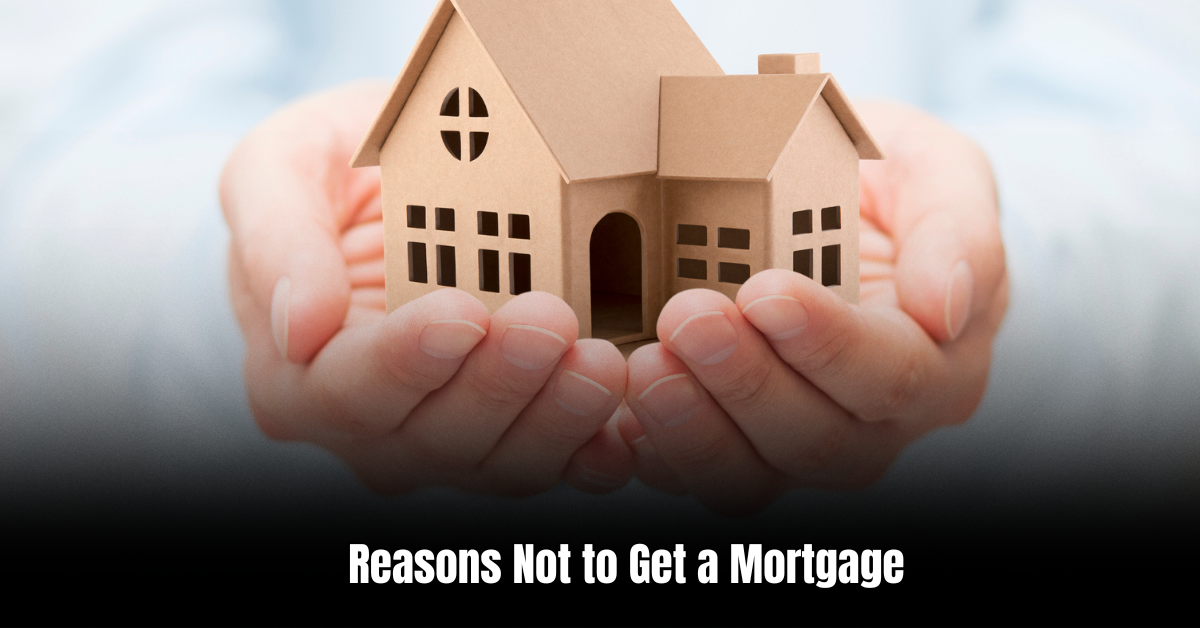Buying a house is a big decision, and one of the most important considerations is whether or not to take out a mortgage. While there are many benefits to obtaining a mortgage, it’s essential to be aware of the potential downsides. In this article, we will explore the reasons why you might want to think twice before getting a mortgage.
1. Financial Stress
A mortgage is a significant financial commitment that can cause stress and anxiety if not managed properly. Monthly mortgage payments can take up a substantial portion of your income, leaving little room for other expenses. If you are already struggling to meet your monthly obligations or have an uncertain income, taking on a mortgage may not be a wise choice.
2. High Interest Rates
Depending on the prevailing interest rates, your mortgage could end up costing you a substantial amount of money in interest over the long term. If the interest rates are high, it may be more cost-effective to wait until the rates are more favorable before taking out a mortgage. This way, you can potentially save thousands of dollars in interest payments.
3. Potential for Foreclosure
If you fail to keep up with your mortgage payments, there is a risk of foreclosure. Losing your home due to financial difficulties is an emotionally and financially devastating experience. Before deciding to get a mortgage, make sure you have a stable income and an emergency fund that can cover unexpected expenses.
4. Limited Flexibility
When you have a mortgage, you are tied to the property until the loan is paid off or refinanced. This lack of flexibility can make it challenging to move or relocate, especially if you need to sell your house quickly. If you prefer a more nomadic lifestyle or anticipate the need for frequent moves, renting may be a more suitable option for you.
5. Additional Expenses
Alongside your monthly mortgage payments, there are other costs associated with owning a home. Property taxes, homeowner’s insurance, repairs, and maintenance expenses can quickly add up. These extra financial burdens should be factored into your decision-making process before committing to a mortgage.
6. Market Volatility
The housing market is subject to fluctuations, and the value of your property can rise or fall depending on economic conditions. If, for any reason, the value of your house decreases significantly, you may find yourself in a situation where you owe more on your mortgage than your home is worth. This can make it challenging to sell your property or refinance your loan.
7. Long-Term Commitment
Most mortgages have terms that span multiple years, typically 15 to 30 years. Committing to such a long-term financial obligation may limit your ability to pursue other financial goals, such as starting a business, investing, or saving for retirement. It’s essential to consider how a mortgage will impact your overall financial plan.
Frequently Asked Questions For Reasons Not To Get A Mortgage: Uncovering The Hidden Pitfalls
Should I Get A Fixed Or Adjustable Rate Mortgage?
Consider your budget, long-term plan, and current financial situation to make an informed decision.
Can I Get A Mortgage With a Credit Score Below 600?
Most traditional lenders require a minimum credit score of 620, but there are alternative options available.
What Are The Drawbacks Of A 30-year Mortgage?
Lower monthly payments but higher interest cost over the life of the loan. Weigh the pros and cons.
Is It Wise To Get A Mortgage With A Low Down Payment?
It may seem appealing, but a low down payment could lead to higher interest rates and private mortgage insurance.
Conclusion
While getting a mortgage can be a practical way to achieve homeownership, it’s vital to consider all the associated risks and drawbacks carefully. Financial stress, high interest rates, potential for foreclosure, limited flexibility, additional expenses, market volatility, and long-term commitment are all factors that warrant thoughtful reflection. Take the time to evaluate your financial situation and priorities before deciding whether or not to take on a mortgage.
Ismail Hossain is the founder of Law Advised. He is an Divorce, Separation, marriage lawyer. Follow him.





Leave a Reply